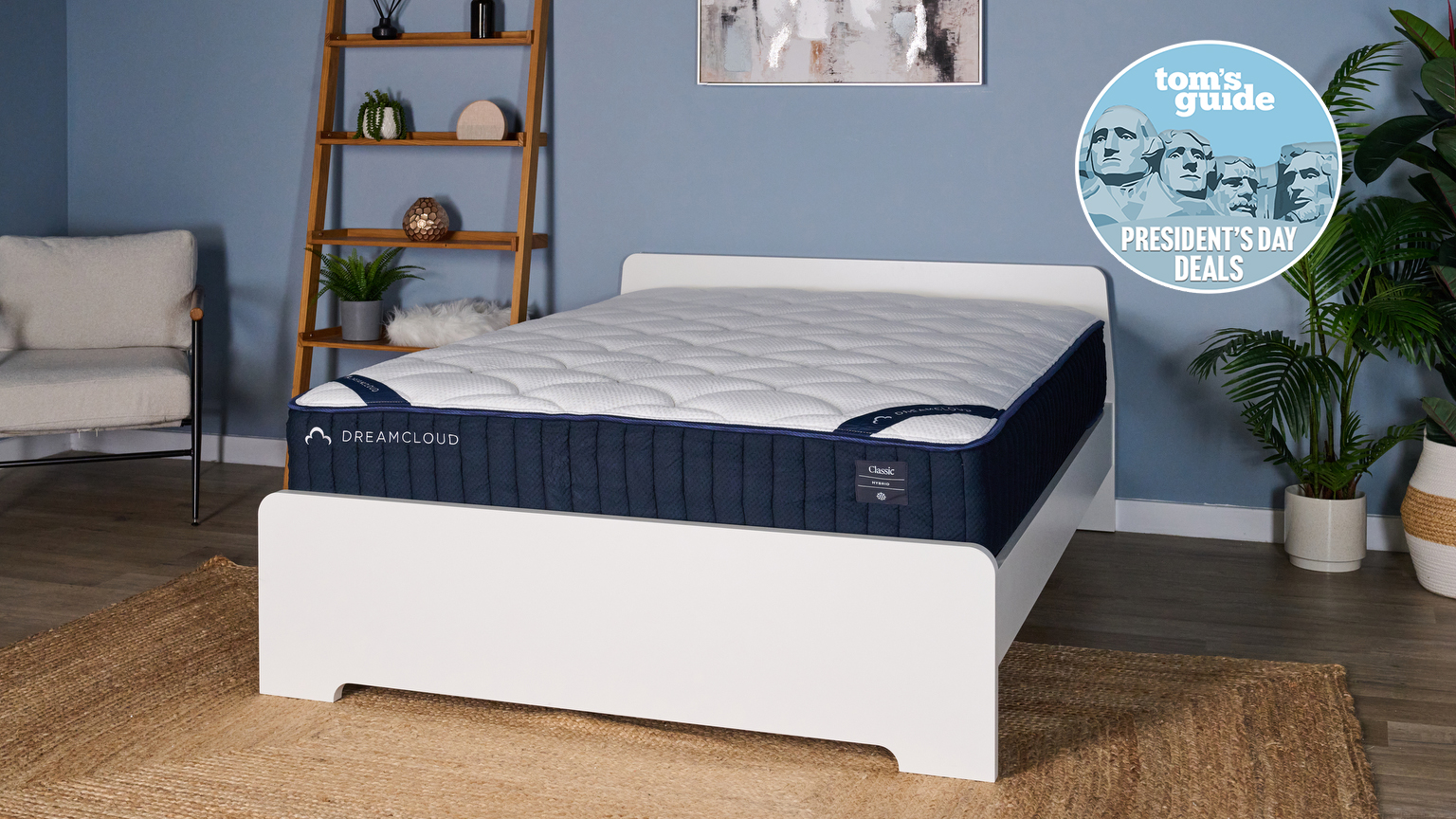Apple 2020 report card — the best and worst of the year
Apple had a stellar year despite facing a global pandemic, but there were some misses

Here at Tom’s Guide our expert editors are committed to bringing you the best news, reviews and guides to help you stay informed and ahead of the curve!
You are now subscribed
Your newsletter sign-up was successful
Want to add more newsletters?

Daily (Mon-Sun)
Tom's Guide Daily
Sign up to get the latest updates on all of your favorite content! From cutting-edge tech news and the hottest streaming buzz to unbeatable deals on the best products and in-depth reviews, we’ve got you covered.

Weekly on Thursday
Tom's AI Guide
Be AI savvy with your weekly newsletter summing up all the biggest AI news you need to know. Plus, analysis from our AI editor and tips on how to use the latest AI tools!

Weekly on Friday
Tom's iGuide
Unlock the vast world of Apple news straight to your inbox. With coverage on everything from exciting product launches to essential software updates, this is your go-to source for the latest updates on all the best Apple content.

Weekly on Monday
Tom's Streaming Guide
Our weekly newsletter is expertly crafted to immerse you in the world of streaming. Stay updated on the latest releases and our top recommendations across your favorite streaming platforms.
Join the club
Get full access to premium articles, exclusive features and a growing list of member rewards.
Just like every major tech company, Apple faced coronavirus-related delays in 2020, but it managed to release a slew of products while breaking into new categories. And Apple also redefined the virtual event for the rest of the tech industry.
On the surface, the highlight of the year was the new lineup of four iPhone 12 handsets, but the bigger news was Apple’s new M1 chip, as the company pulled away from Intel while showing Windows laptop makers how to do ARM-based computing right. Apple also responded fairly well to a challenging economy by delivering several value-focused products, although the ultra-premium AirPods Max $550 headphones left many scratching their heads.
Apple didn’t excel in all areas, as its ongoing feud with developers — from Epic games to Google Stadia — got ugly at times. And the decision not to include a charger with the iPhone 12 came across to many critics as more greedy than green. Here’s how Apple stacked up in 2020.
Apple's highs in 2020
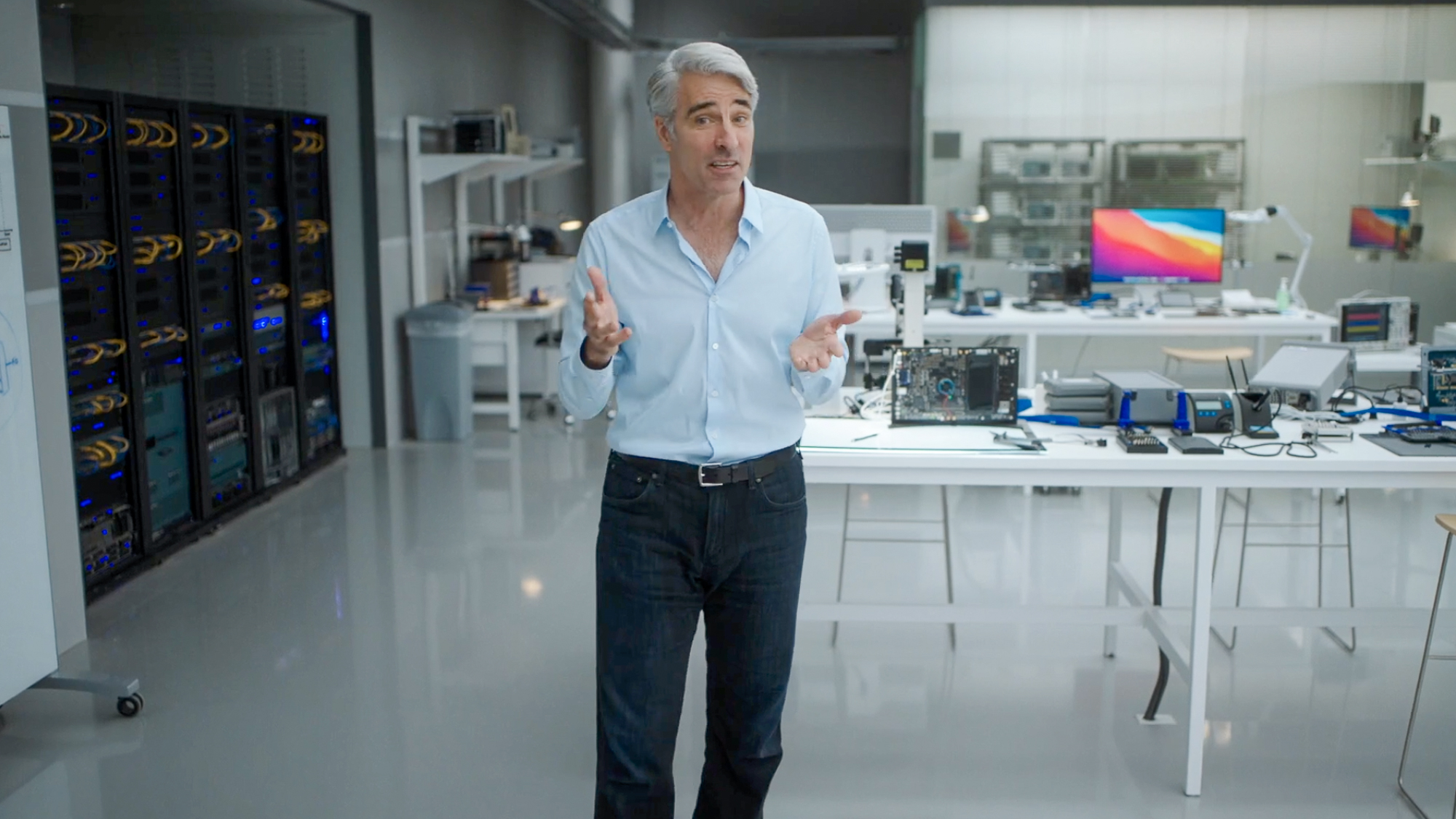
Apple’s virtual events
While there is something special about attending an Apple event in person, no brand even came close to delivering the polish, gravitas and (yes) fun that Apple did with its virtual events in 2020.
I got a kick out of how Apple would change locations for each pre-recorded segment, such as zooming way down into what looked like a secret lab to discuss the new A14 Bionic chip.
Between Tim Cook, Craig Federighi, Greg Joswiak and others taking turns speaking, advanced animations and the overall pacing, Apple’s presentations made you feel like you were there live — and that’s a pretty impressive feat. They even filmed Lisa Jackson (VP of Environment, Policy and Social Initiatives) on the roof at the new Apple campus, next to the company's solar panels.
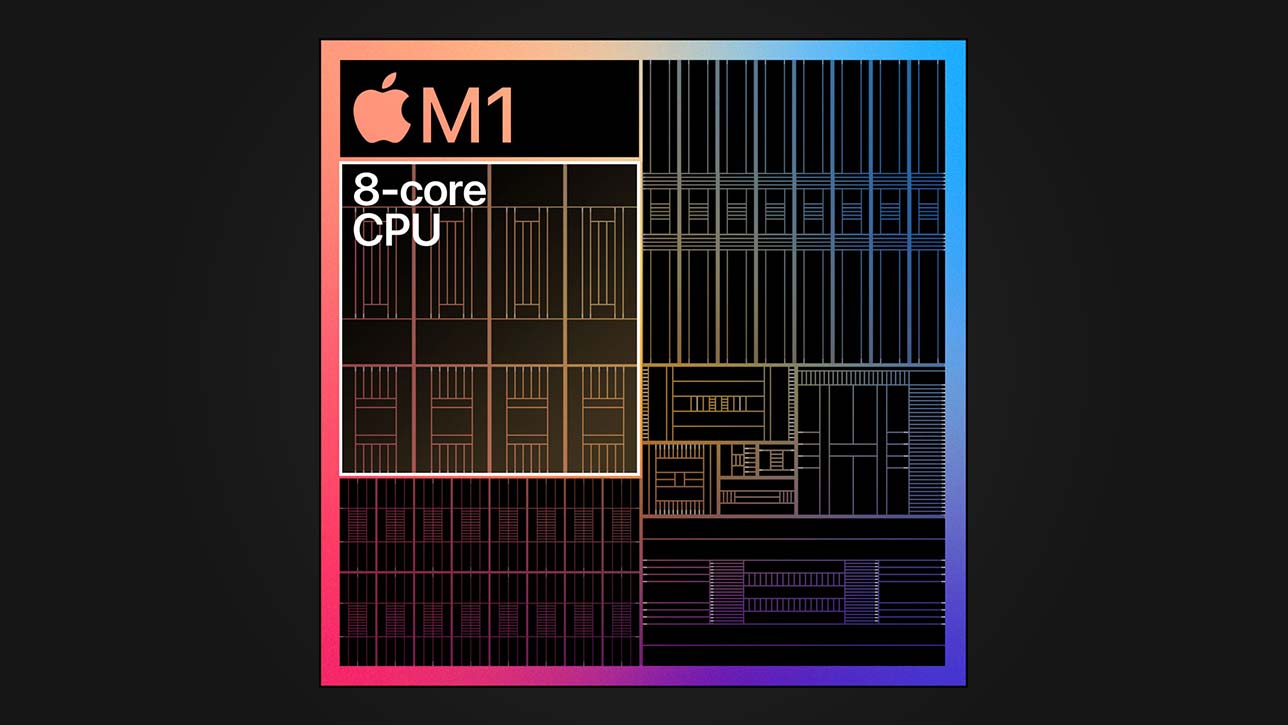
Apple’s game-changing M1 chip
2020 will be remembered as the year Apple silicon made its way to the Mac, and what a splash it has turned out to be. Apple’s M1 chip delivered phenomenal performance on both the MacBook Air M1 and MacBook Pro M1, as well as the new Mac Mini. In fact, the MacBook Air is so fast relative to competing Windows laptops that this $999 laptop may be "Pro" enough for most buyers.
Get instant access to breaking news, the hottest reviews, great deals and helpful tips.
The other big story with the M1 chip is battery life. The MacBook Air lasted an average of 14 hours and 41 minutes on our web-surfing battery test. The MacBook Pro endured for 16:32. The latest Dell XPS 13 lasts a little over 11 hours.
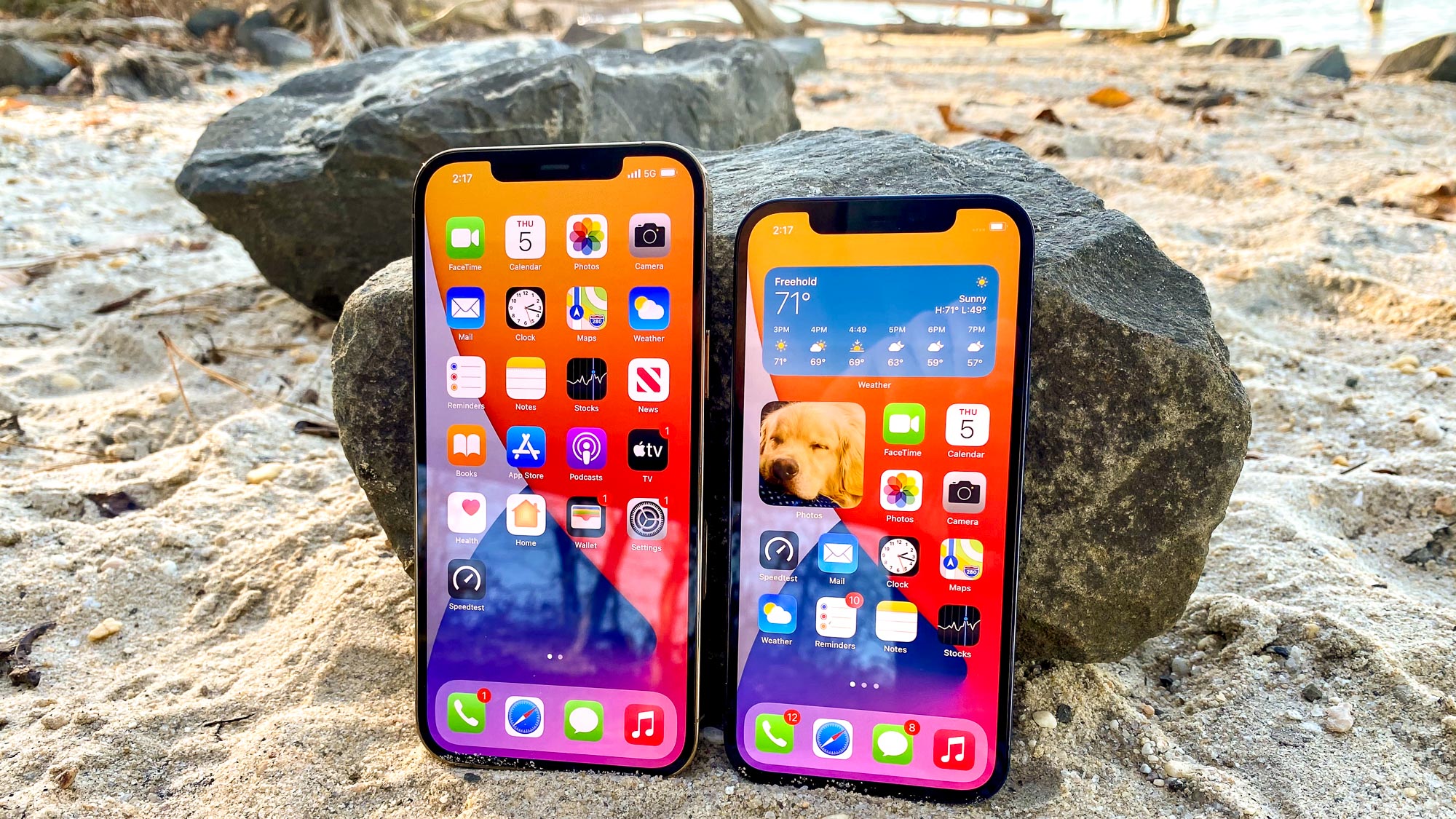
iPhone 12 takes the crown
Apple made the smartphone wars a little boring in 2020, as no other phones came close to beating its new quartet of handsets. Thanks to Apple’s computational photography prowess, the iPhone 12 Pro Max rose to the top of our best phone list and best camera phone list. The other iPhone 12 models deliver similarly superb image quality.
The A14 Bionic chip is another highlight, as this 5nm processor blew the doors off of every Android phone on iPhone 12 benchmarks. Apple made the iPhone 12 sleeker as well as tougher with a new Ceramic Shield display. The iPhone 12 battery life could be better, but overall the Samsung Galaxy S20, Google Pixel 5 and other competitors were left in the dust.
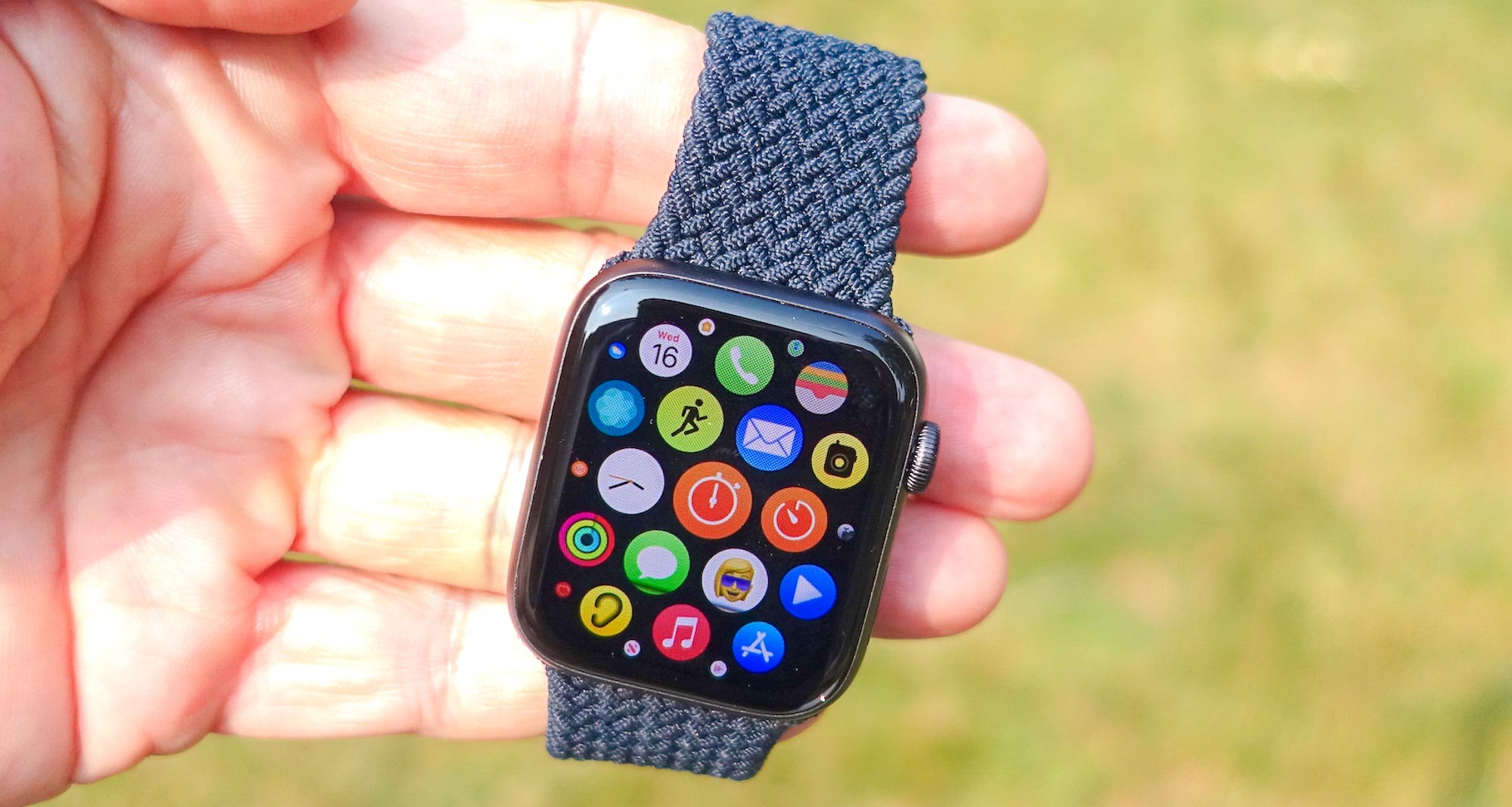
Great value-priced products
In a down year for the economy, Apple did a fairly remarkable job responding with products that delivered on value. The $399 iPhone SE is the best example of Apple reading the room. It packs a fast A13 Bionic processor inside a compact design, along with excellent photo quality and wireless charging. The $279 Apple Watch SE is another good value, as it offers all of the key features people look for in a smartwatch, including a roomy Retina display, fitness tracking and fall detection.
Last but not least, the $99 HomePod mini delivers superb audio quality for its small size, and I like that you can bring your iPhone up to the speaker to make the HomePod automatically starts playing.
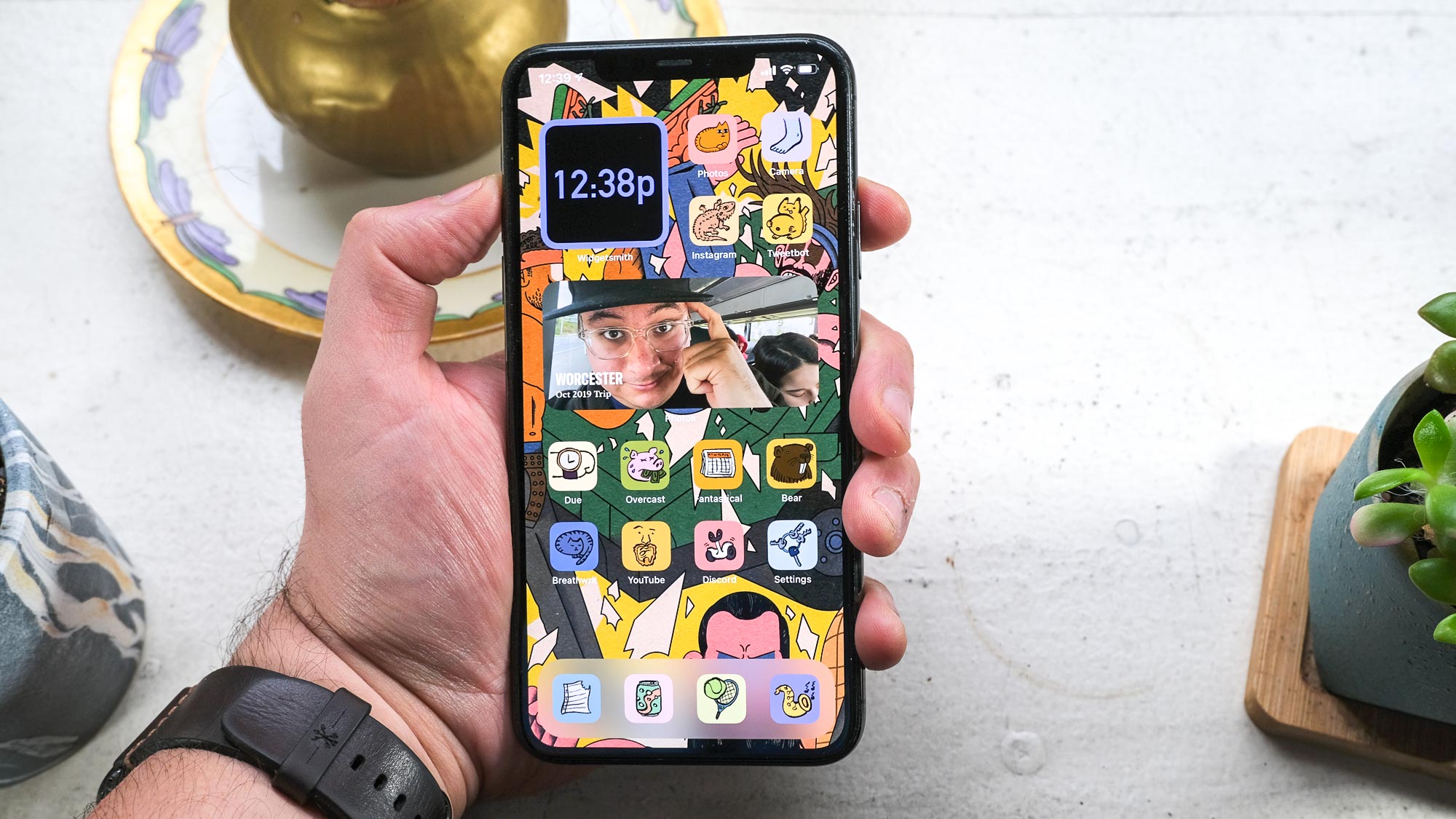
Finally getting proper widgets and customization in iOS 14
With iOS 14, Apple has helped iPhone owners create an interface that feels truly personal. You can place multiple types of widgets on the home screen, size them how you want and place them wherever you like. You also easily add a Smart Stack of widgets and page through them quickly with a swipe, whether you want to look at your favorite photos, skim for news headlines or check your calendar or stocks.
The other big upgrade is that you can create custom icons in iOS 14 for a truly unique look and feel. We have a whole guide on how to make custom iPhone widgets and icons in iOS 14 to personalize your experience. You just need to familiarize yourself a bit with iOS shortcuts.

A good Apple TV Plus show in Ted Lasso
Apple TV Plus has plenty of shows that are not compelling (see See), but Ted Lasso has turned into a hit for the streaming service. Its rating on Rotten Tomatoes is a stellar 90%, and Apple has already confirmed a season 3.
Ted Lasso follows the exploits of a Division 2 college football coach who is recruited to be a manager for the English Premier League soccer club AFC Richmond, and his relentless positivity is charming and infectious. Our own Henry T. Casey calls Ted Lasso the perfect Apple TV Plus show: “From his wholesome and authentic smile to each and every one of his witticisms, Lasso will melt your bad mood even after the longest day.”
Apple's lows in 2020
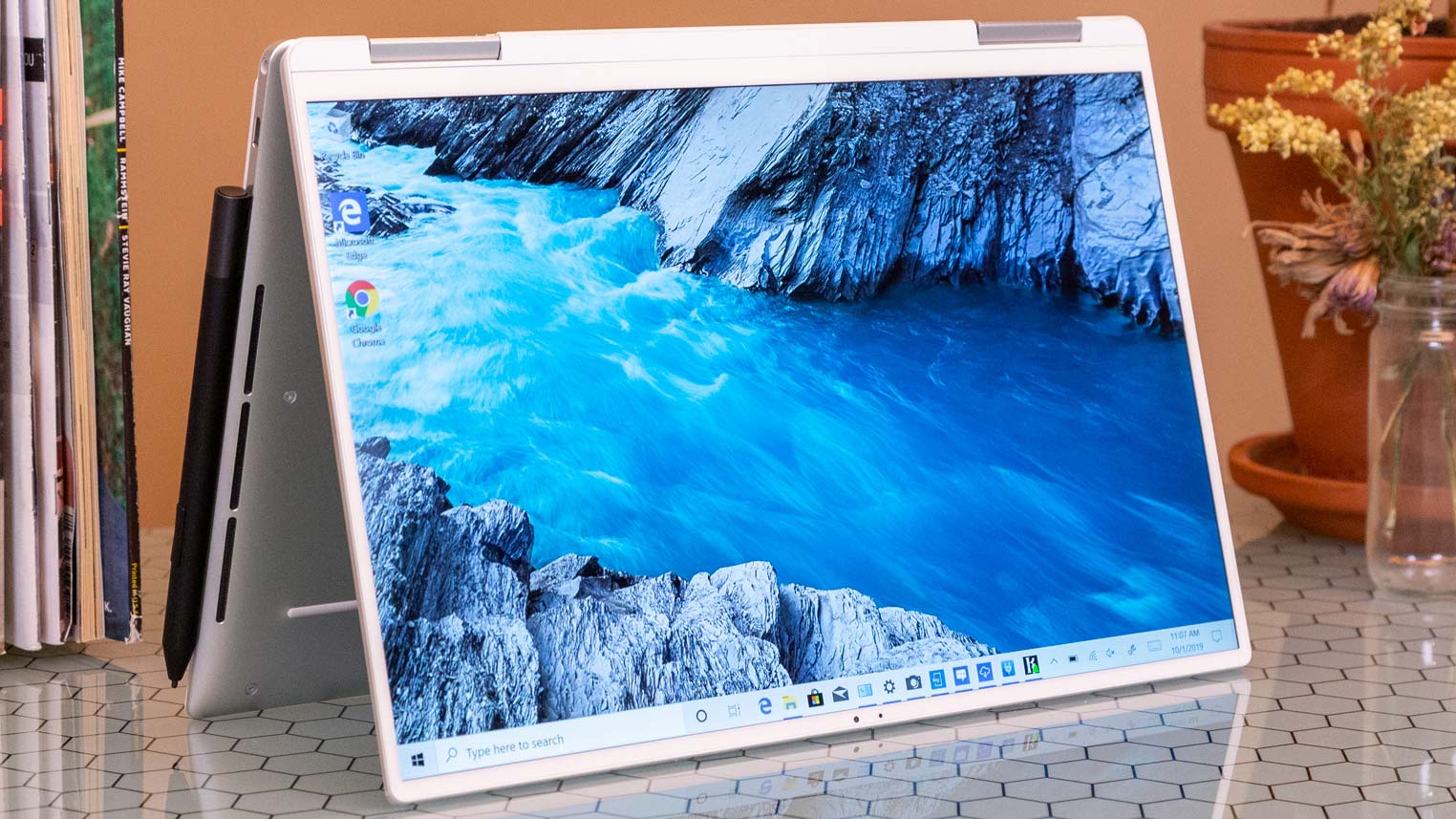
Where are the 2-in-1 laptops?
One of the best things about macOS Big Sur is that you can easily download iPhone and iPad apps -- including games -- and run them right on the desktop. There are plenty of great titles now in the Mac App Store as well. But none of them work with a touchscreen because Apple still refuses to offer one.
Yes, the iPad Pro is a great productivity tool, but there are many Mac shoppers who want a laptop first and a tablet second, not the other way around. A true 2-in-1 Mac laptop would give users the ultimate in versatility, and Apple could finally retire the mostly vestigial Touch Bar on the MacBook Pro.
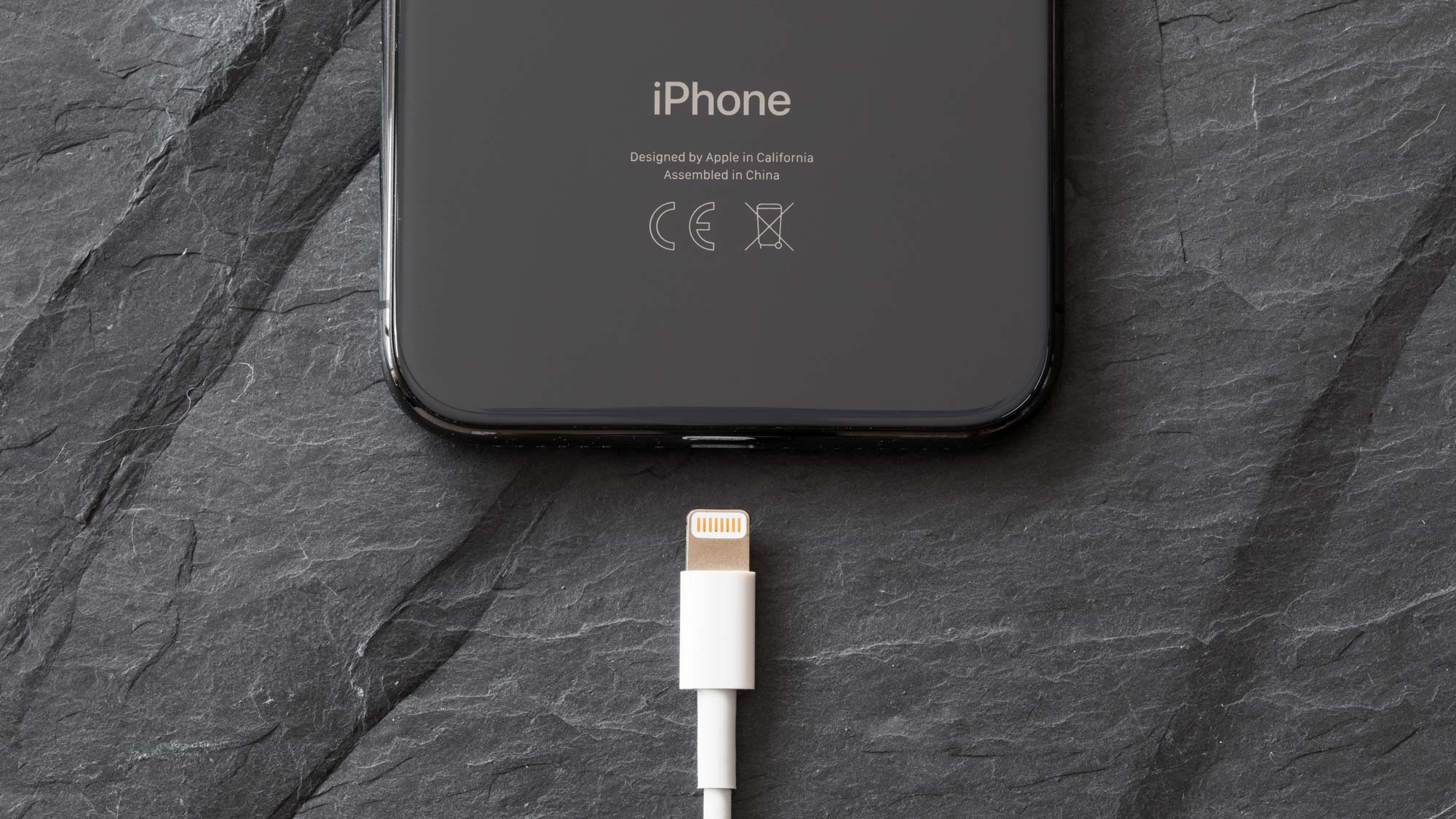
Refusing to embrace USB-C
We knew the iPhone 13 wouldn't embrace USB-C, but we didn’t feel any better once the phones landed. For some reason, Apple continues to cling to Lightning connectors for its phones and even for the new AirPods Max, while USB-C generally delivers more power faster. Apple already uses USB-C on the MacBook,iPad Pro and the new iPad Air.
So what gives? Apple makes a ton of money from selling cables and accessories that use the proprietary Lightning port, and also gets licensing fees from third parties. So it’s very possible that the iPhone 13 will skip USB-C too. In fact, Apple is rumored to be working on at least one portless model for the iPhone 13 line that would presumably use wireless MagSafe for charging.

The Epic Games fiasco
In a perfect example of taking your ball and going home, in August Apple banned Fortnite from the App Store after Epic Games violated the terms of service. Epic essentially bypassed Apple for payments because the App Store requires that Apple get a 30% cut of in-app purchases. Epic sued, accusing Apple of monopolistic practices. Of course, Apple responded with a lawsuit of its own.
There doesn’t seem to be any resolution of this battle in sight, but a court date is reportedly set for May 3, 2021. In the meantime, gamers are the ones who are really losing.
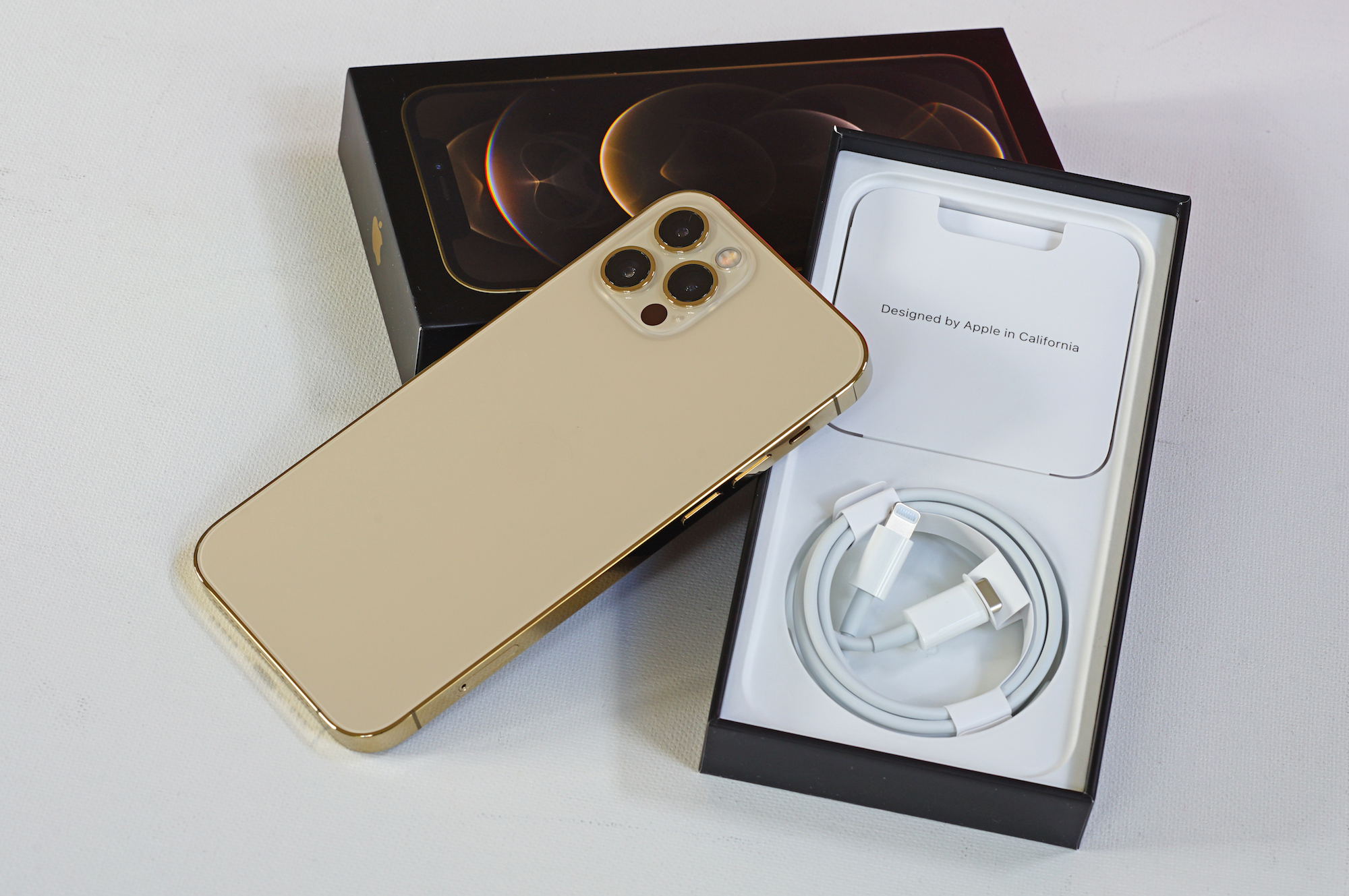
No charger in the iPhone 12 box
Listen, I get it. Not bundling a charger in the iPhone 12 box helps the environment as it leads to a lot less electronic waste. Yes, lots of people already have chargers at home that will work with the iPhone 12.
But if you want to charge at the fastest speeds, you’ll need to spring for your own 20W USB charger ($19), which kind of makes the iPhone 12’s pricing misleading. If you want to try MagSafe wireless charging, you’ll have to spring for that $39 charger plus the cost of the $19 power brick. Boo.
Mark Spoonauer is the global editor in chief of Tom's Guide and has covered technology for over 20 years. In addition to overseeing the direction of Tom's Guide, Mark specializes in covering all things mobile, having reviewed dozens of smartphones and other gadgets. He has spoken at key industry events and appears regularly on TV to discuss the latest trends, including Cheddar, Fox Business and other outlets. Mark was previously editor in chief of Laptop Mag, and his work has appeared in Wired, Popular Science and Inc. Follow him on Twitter at @mspoonauer.
 Club Benefits
Club Benefits











